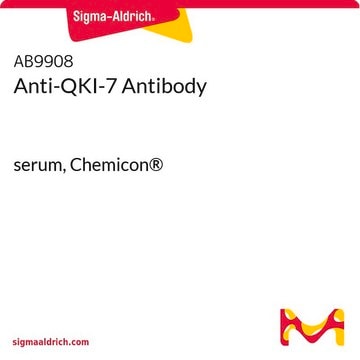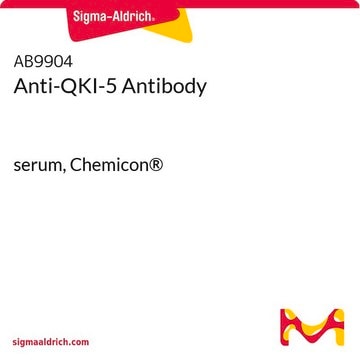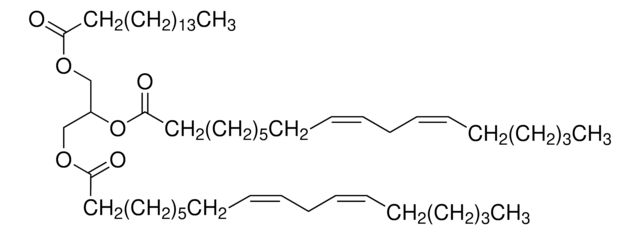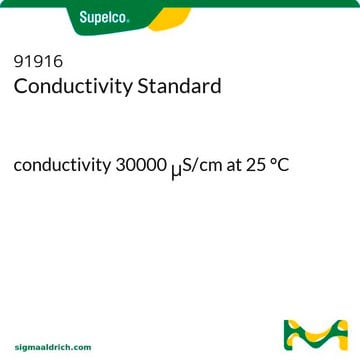AB9906
Anti-QKI-6 Antibody
serum, Chemicon®
Sinonimo/i:
Quaking Protein
About This Item
Prodotti consigliati
Origine biologica
rabbit
Livello qualitativo
Forma dell’anticorpo
serum
Tipo di anticorpo
primary antibodies
Clone
polyclonal
Reattività contro le specie
mouse, rat, human
Produttore/marchio commerciale
Chemicon®
tecniche
immunoprecipitation (IP): suitable
western blot: suitable
N° accesso NCBI
N° accesso UniProt
Condizioni di spedizione
wet ice
modifica post-traduzionali bersaglio
unmodified
Informazioni sul gene
human ... QKI(9444)
Descrizione generale
Specificità
Immunogeno
Applicazioni
Neuroscience
Developmental Neuroscience
RNA Binding Protein (RBP)
Stato fisico
Stoccaggio e stabilità
Risultati analitici
Positive Control: Glial cells, astrocytes and oligodendrocytes.
Note legali
Esclusione di responsabilità
Not finding the right product?
Try our Motore di ricerca dei prodotti.
Codice della classe di stoccaggio
10 - Combustible liquids
Classe di pericolosità dell'acqua (WGK)
WGK 1
Punto d’infiammabilità (°F)
Not applicable
Punto d’infiammabilità (°C)
Not applicable
Certificati d'analisi (COA)
Cerca il Certificati d'analisi (COA) digitando il numero di lotto/batch corrispondente. I numeri di lotto o di batch sono stampati sull'etichetta dei prodotti dopo la parola ‘Lotto’ o ‘Batch’.
Possiedi già questo prodotto?
I documenti relativi ai prodotti acquistati recentemente sono disponibili nell’Archivio dei documenti.
Il team dei nostri ricercatori vanta grande esperienza in tutte le aree della ricerca quali Life Science, scienza dei materiali, sintesi chimica, cromatografia, discipline analitiche, ecc..
Contatta l'Assistenza Tecnica.








